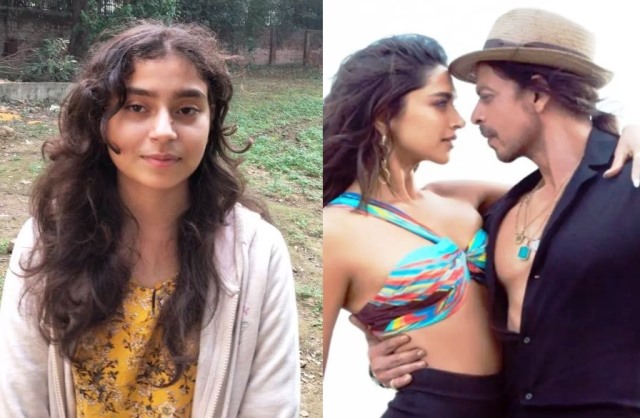Satyam Shrivastava, a Delhi-based development professional, says Indian audience is fed up with the cancel culture which selectively targets a section of Bollywood
I watched the Shahrukh-starrer Pathaan a couple of days back with my family at a PVR multiplex in New Delhi. The excitement around the theatre was palpable; it was teeming with SRK fans. Despite the increased prices of tickets, there was heavy rush at the booking window. I think such a rage was seen for the first time since the reopening of cinema halls after Covid days.
It is possible that the calls to boycott the movie had sparked some kind of defiant thrill among Shahrukh Khan’s admirers. I am in no doubt that Pathaan will prove to be a ‘bounce back’ moment for Bollywood.
I had my individual reasons to watch the movie; I went there in support of Shahrukh Khan. I am sure I was not alone with the cause. The entire opposition to the movie was based on a ridiculous argument: a brief clip of Deepika Padukone wearing an orange (some saw saffron) bikini and singing Besharam Rang. Clearly, the target of the boycott brigade was Shahrukh Khan and Deepika, not the movie or the perceived vulgarity.
These two are film stars have, in their silent and subtle conduct, defied the Hindutva majoritarianism. Despite all kinds of state and non-state harassment, they have stood their ground. While Deepika made her silent presence felt in solidarity with Jawaharlal Nehru University (JNU) students, Shahrukh Khan, stoically countered a conspiratorial campaign against his son Aryan and did not line up to serve the powers that be. This had riled the Hindutva brigade no end who champion a different idea of ‘New India’.
ALSO READ: ‘Pathaan Injects A Fresh Lease Of Life In Bollywood’
Shahrukh and Deepika represent an ‘old India’ where artists were recognised by their talent and not by their surname, caste or ideology. And the movie, Pathaan stands like a non-violent resistance symbol to the boycott brigade representing a majoritarian ideology.
There are reports that many theatres have started additional slots to screen Pathaan; single-screen theatres have got the opportunity they had been long waiting for; and about the audience is going berserk when Salman Khan makes and entry. It proves that the audiences are fed up with such baseless boycott calls, and have collectively stood up to the threats by showing up in large numbers. The message is: We shall decide which movie to watch or disregard.
Pathaan is an entertaining ensemble of filmy massalas. And entertainment remains the main objective of any artwork. The film will also be a trendsetter in terms of the use of technology in Hindi cinema and pave way for making films in the same league as the Marvel Studios of Hollywood. Air fights, high-speed biking on ice, VFX footages are all very common in western cinema. Now these are being served by Bollywood too.
Read More: http://13.232.95.176/
(The narrator is the director of a Delhi-based civil society organisation, SRUTI (Society for Rural, Urban and Tribal Initiative)
As told to Abhishek Srivastava

